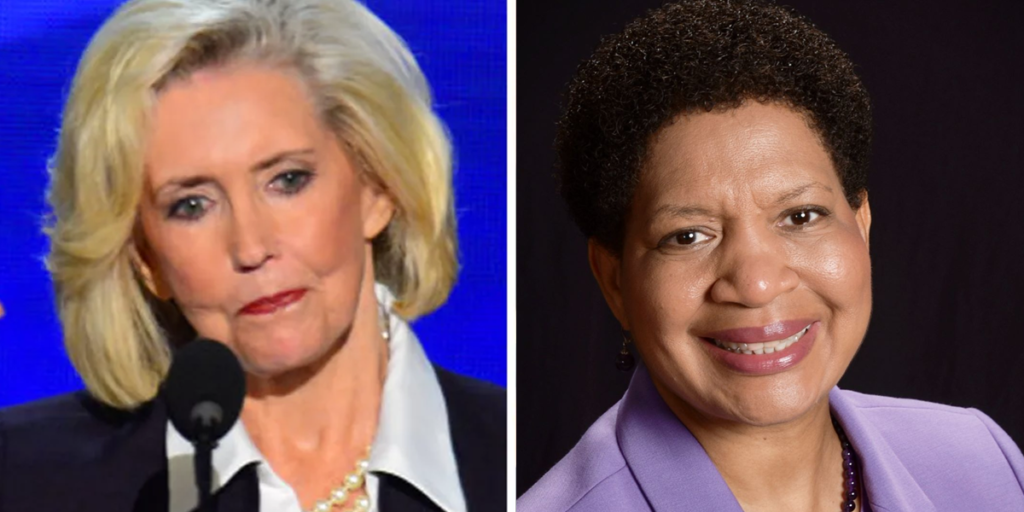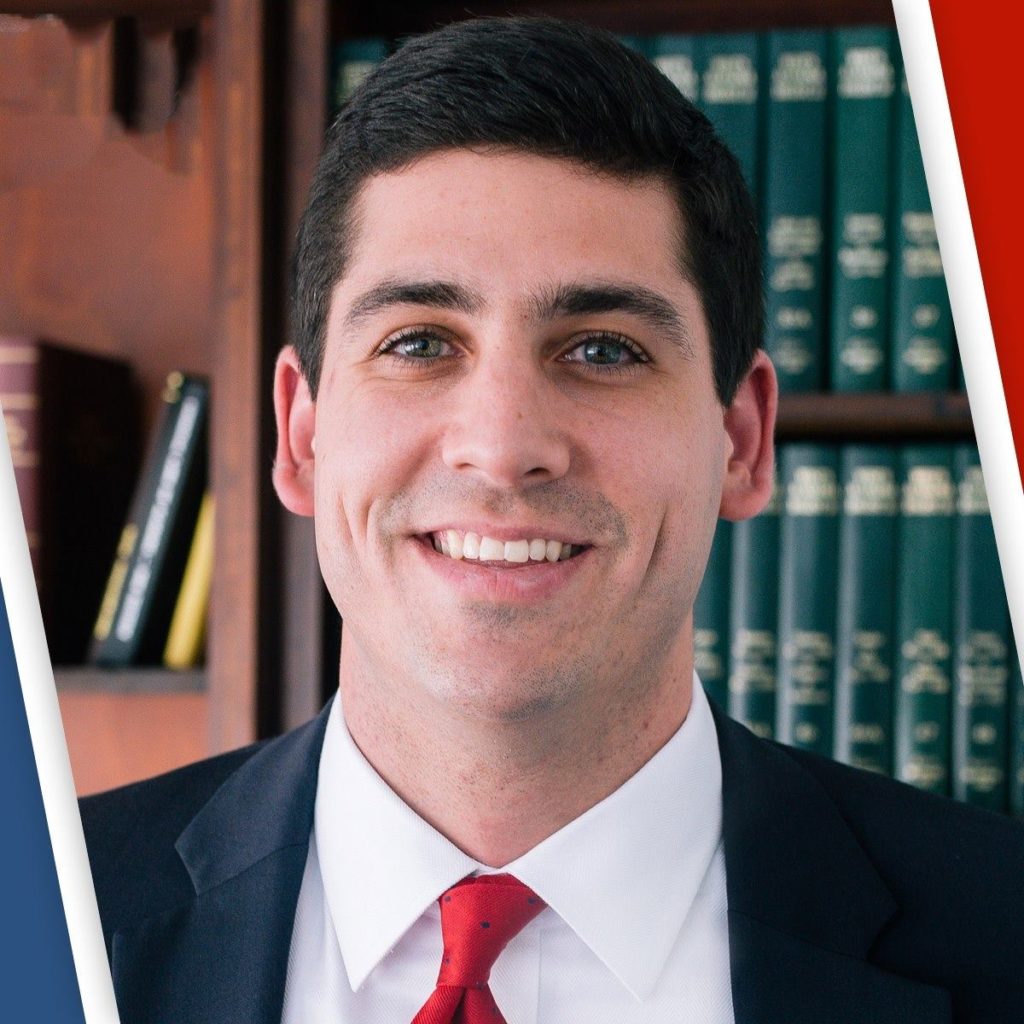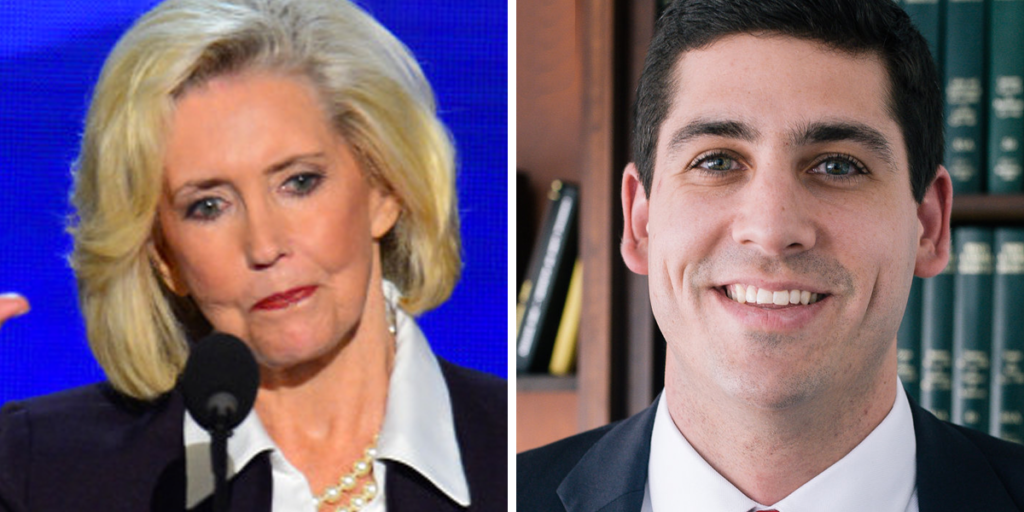Equal pay efforts reviving in Mississippi in 2022

Mississippi is the only state without a law requiring equal pay for equal work by women and men after Alabama enacted one in 2019. Efforts have fallen short in Mississippi in recent years, but Senate Labor Committee Chairman John Hohrn, a Democrat from Jackson, promises to make another push for equal pay legislation in 2022. Opponents have said there’s no need for a Mississippi law because of two federal laws — the Equal Pay Act of 1963 signed by President John F. Kennedy and the Lilly Ledbetter Fair Pay Act of 2009 signed by President Barack Obama. Some also say they don’t want the state to put new regulations on businesses. A 2017 report by the Mississippi University Research Center showed women earned 27% less than men for fulltime work in Mississippi, compared to a 19% wage gap nationwide. The study said some of the gap could be explained by factors such as types of jobs women and men were working, but the unexplained wage gap remained about 18% in Mississippi and about 15% nationwide. The report said a portion of the unexplained gap in Mississippi “may be due to discrimination,” but other factors such as the choice of college majors or decisions about work-life balance may be in play. “If women are willing to take lower pay so that they can work hours more suitable to their family’s needs, then discrimination is not at play,” the report said. “However, if employers assume all women are willing to take lower pay for more flexible hours and therefore do not offer women other options, discrimination could exist.” Cassandra Welchlin, executive director of the Mississippi Black Women’s Roundtable, told the Senate Labor Committee on Wednesday that women comprise 49% of the Mississippi workforce but 67% of the minimum-wage workers. She said that over a 40-year career, a Black woman in Mississippi stands to lose more than $849,000 because of the wage gap. “It’s time for Mississippi women to share in the protection that women in other states experience,” Welchlin said. Welchlin said Mississippi needs an equal pay law that does not require people applying for jobs to disclose their salary history because such disclosure often ensures that women remain on track for lower earnings. Senators on Wednesday also heard from Ledbetter, whose legal battle over equal pay went to the U.S. Supreme Court. Ledbetter worked 19 years at a Goodyear Tire & Rubber Co. in Gadsden, Alabama, and sued in 1998 after learning she had been paid significantly less than male colleagues in the same job. A jury awarded her $3.8 million, but the Supreme Court reversed the decision in 2007. Justices said she waited too long to sue, and did not rule on whether discrimination occurred. Speaking to Mississippi lawmakers by videoconference, Ledbetter said earning less money for equal work affects the type of houses people live in, the kind of food they eat and the kind of retirement they will have. “I know what it’s like to dig and scratch out a living,” Ledbetter said, noting that many in Alabama and Mississippi are in the same position. “And it’s time that women can stand up with dignity for their education and their training and earn a good living.” Mississippi Attorney General Lynn Fitch, the first woman elected to that job, is among supporters of equal pay legislation. A deputy attorney general, Whitney Lipscomb, spoke to the Labor Committee on behalf of Republican Fitch, saying it’s a bipartisan issue that affects everyone. “Equal pay is an opportunity for the state to break the intergenerational cycle of poverty and strengthen our economy,” Lipscomb said. She said a law should require equal pay for “equal work in the same job that requires equal skills, effort, education, experience, responsibilities, and performance under similar working conditions.” She also said it should provide exceptions based on seniority systems or merit systems that are based on quantity or quality of production or differentials based on factors other than sex. “Passing a state equal pay law will not impose any new obligations on employers,” Lipscomb said. Republished with the permission of the Associated Press.
Equal pay activist Lilly Ledbetter endorses State Rep. Adline Clarke

Alabama State Rep. Adline Clarke has won the endorsement of the woman who became the face of the women’s equal pay movement in Congress. Lilly Ledbetter, the Alabama-native and namesake of former President Barack Obama‘s first piece of legislation signed into law back in 2009, endorsed the Alabama House of Representatives District 97 representative on Tuesday ahead of the upcoming election. “Adline is leading the fight for women and our families in Montgomery,” Ledbetter said of her endorsement. “She has a proven record on the issues that most impact our families and future and I am proud to support her.” Clarke said she’s honored to have Ledbetter’s support “I am so incredibly honored to have the support of Lilly Ledbetter,” said Clarke. “Her work on behalf of women and all citizens has had a tremendous impact on me and so many others. I look forward to working with her again during the next session to finally pass a long overdue Equal Pay bill here in Alabama.” Clarke’s fight for pay equality In the State House, Clarke has led the fight for Equal Pay legislation and has been an important voice on issues including ensuring Alabamians have access to well paying jobs, well-funded schools and quality affordable healthcare. In March, she introduced HB368. The bill would prohibit employers from paying their employees less than the wage they would pay a member of the opposite sex for a similar job or responsibilities when viewed as a composite of skill, effort, and responsibility, as specified. Alabama is one of only two states, along with Mississippi, without an equal pay law. “Nearly every state has a law prohibiting employers differently based solely on gender. I’m disappointed. I would have thought we would have passed a long long before now,” Clarke told AL.com in March.“Timing is everything.” Ultimately, Clarke’s bill, which mirrored federal law but tasked the Alabama Department of Labor with enforcement, failed. “Clarke is definitely planning to introduce it again and given the bipartisan coalition in support which she built last session (27 sponsors and cosponsors men and women, Democrats and Republicans),” said Marion Steinfels on behalf of Rep. Clarke. “She feels confident we will finally pass it here.” Clarke faces Republican candidate Stephen McNair on Nov. 6.
Five things you need to know about Joseph Siegelman

Now that the runoff elections are over, voters are turning their attention to the November General Election only 106 days away. Democratic Attorney General candidate Joseph Siegelman beat his primary opponent Chris Christie in the June primary elections while Incumbent Attorney General and Republican candidate Steve Marshall was thrown into a runoff race. Marshall won his runoff election against Troy King last week with just over 62 percent of the vote; now Marshall will face Siegelman in the November General Election. The attorney general is responsible for representing the state in criminal and civil matters, and the office often is a stepping-stone to other positions. Just ask former Alabama attorney general and U.S. Senator, now-U.S. Attorney General Jeff Sessions. With that in mind, here are the five things you need to know about Joseph Siegelman: 1. He’s the the son of former Gov. Don Siegelman. Siegelman’s father, former Gov. Don Siegelman was a dominating figure in state politics for years, but his career came to a close with a conviction on federal bribery charges. In 2016, Siegelman had filed a lawsuit seeking Department of Justice documents about his father’s prosecution. Ultimately nothing came of it and Don Siegelman was released in 2017, which was a year to the day that Joseph announced his candidacy, from a federal prison in Louisiana where he was serving a six-year sentence for bribery and obstruction of justice. 2. He received some big endorsements during the primary. Siegelman has been endorsed by the New South Alliance and equal pay activist Lilly Ledbetter. 3. He would be a very young AG. If elected, Siegelman, 29, would only be 30 when he assumes office — a stark contrast to his Republican opponent, Steve Marshall who’s career has spanned over 30 years. 4. He’s the managing partner and with The Cochran Firm. Siegelman is the managing partner in The Cochran Firm – Birmingham office. There, his practice focuses primarily in the areas of personal injury, products liability, medical malpractice and mass tort litigation. He is a member of the Alabama State Bar Association and the Birmingham Bar Association and is admitted to practice in all Alabama State and Federal courts. 5. Roll Tide Roll. Siegelman obtained his undergraduate degree from the University of Alabama while completing part of his coursework at the London School of Economics and Political Science in London, England. He received a Bachelor of Science in Commerce and Business Administration, graduating summa cum laude from the University of Alabama’s Honors College and Business Honors Program. He also received his Juris Doctor from the University of Alabama School of Law. In law school, he twice represented the University of Alabama as an advocate on its National Trial Team and was awarded the George Peach Taylor Award for his outstanding trial advocacy.
Democrats Chris Christie, Joseph Siegelman face off in attorney general primary

Voters in Alabama’s Democratic primary for attorney general will choose between a political newcomer with decades of legal experience and the son of a former governor who wants people to judge him on his own merits. The two attorneys, Chris Christie and Joseph Siegelman, are at different stages of their legal careers but making their first runs for public office. They face off Tuesday for a chance to meet the winner of the Republican primary, where Attorney General Steve Marshall faces three challengers. Both Democratic candidates say the office of attorney general should concentrate more on consumer protection but has been distracted by side issues under past leadership. “People in Alabama need to have someone in Montgomery who is going to look out after their interests,” said Christie, 59. Siegelman, 29, said the attorney general’s office needs to focus more on people than politics. “I believe that we have lost focus on the people of Alabama, the issues that affect them and how we can use that office to assist the people of Alabama and make their lives better,” he said. His priorities include consumer protection, fighting the opioid addiction epidemic and advocating for a criminal justice reform that doesn’t warehouse the mentally ill in state prisons. Siegelman said that although people might be familiar with his last name, he wants them to get to know him. “I’m proud to my father’s son. I’m proud to be my mother’s son, but I want to make sure people get to know Joe. My dad’s not in this race,” he said. Siegelman’s father, former Gov. Don Siegelman was a dominating figure in state politics for years, but his career came to a close with a conviction on federal bribery charges. The younger Siegelman is a graduate of the University of Alabama School of Law and joined the Cochran Firm practice, where his work included civil rights issues. He also joined his father’s appellate legal team, occasionally speaking to the press on his father’s behalf as the elder Siegelman fought to overturn the conviction. Christie is emphasizing his more than 30 years of legal experience, and says his priorities are fighting corruption and promoting consumer protection and public safety. He said the state needs to have an attorney general willing to fight corruption — on both sides of the political aisle. “My objective is not to put as many government officials in jail as possible. My objective is to have compliance with the law. … For those that don’t, there are going to be consequences,” Christie said. Christie wants to seek changes in the ethics law. He is critical of the ability of “dark money” — money from undisclosed donors — to flow into nonprofit foundations connected to politicians. Christie is a graduate of Duke University School of Law and had been a partner with the law firm of Bradley Arant Boult Cummings. In his law practice, he has represented pension plans, including the Retirement System of Alabama and health care providers. His notable cases include a $16 million settlement for state employees in a lawsuit over a deferred compensation plan after discovering the investment firm that got the business had been paying millions to the employees’ lobbying group. The Alabama Democratic Conference has endorsed Christie in the race. Siegelman has been endorsed by the New South Alliance and equal pay activist Lilly Ledbetter. The primary has become notable for its matchup of famous names. Christie is no relation to the former New Jersey governor by the same name, but humorously notes that the coincidence has garnered him much news coverage in the Garden State. Republished with the permission of the Associated Press.
Equal pay activist Lilly Ledbetter endorses Joseph Siegelman for AG

Alabama Attorney General-hopeful Joseph Siegelman won the endorsement of the woman who became the face of the women’s equal pay movement in Congress. Lilly Ledbetter, the Alabama-native and namesake of former President Barack Obama‘s first piece of legislation signed into law back in 2009, endorsed the Birmingham civil rights attorney and the son of former Governor Don Siegelman on Wednesday. “Harassment and unequal treatment of women in the workplace violate the core American values of opportunity and equality,” Ledbetter said. “If current trends continue, women in Alabama will not see equal pay until the year 2088. Joseph Siegelman is committed to equal employment rights for women, and he is the candidate we can trust to follow through with enforcing the law.” Ledbetter became a household name during her tireless fight for equal rights in the workplace, starting with her own wage discrimination case against an Alabama company that paid her substantially less than her male counterparts for almost two decades. Her case went to the U.S. Supreme Court, where she lost in a divided decision in 2007. She continued to fight for pay equality in the workplace, and in 2009, the Lilly Ledbetter Fair Pay Act, which extends the deadline in which workers subjected to pay discrimination can recover lost wages, was signed into law. Siegelman said he takes great price in her endorsement. “Lilly Ledbetter’s personal sacrifice in pursuit of justice for women in the workplace has lifted us all up, and Alabama is lucky to call Ms. Ledbetter one of our own. I take great pride in her endorsement, and I promise her and all women in Alabama that I will honor it,” Siegelman said in a statement. Siegelman announced, in conjunction with his acceptance of Ms. Ledbetter’s endorsement, a slate of policies directed at equal employment rights for women. Ledbetter is Siegelman’s latest of many endorsements. He’s previously received endorsements from the Alabama New South Alliance, the Lee County and Bullock County Voters League, the Democratic Women of Barbour County, several unions, including the Communications Workers, the Mine Workers, Electrical Workers, Pipefitters, the Central Alabama Labor Federation and the Alabama Building and Construction Trades.
Alabama women suing for equal pay lack state protection

Amy Heatherly believes she would have been paid at least $50,000 more to do her job over the past five years if she had been a man. As the only female human resources director overseeing compensation at the University of Alabama’s main campus, Heatherly said she knew for years she was getting paid less than three men on a similar management level with fewer years of experience. She filed a complaint with the Equal Employment Opportunity Commission in 2014, after receiving a raise that was half of her male colleagues’. In 2016, she sued the university. “It did not have as much to do with the money but me feeling like I’m paid my worth, or at least paid equitably, like you’re being respected and recognized for what you do,” said Heatherly, 52, who has worked at the university for 19 years. The university argues differences in pay are justified because her position is not comparable to her male colleagues. Heatherly says that she is a victim of gender discrimination because she’s not receiving equal pay for equal work. White women in Alabama make 72 cents to a white man’s dollar. Black women make 57 and Latinas 47, the National Women’s Law Center calculated. Federal law prohibits wage discrimination on the basis of sex for equal work, except where there is a difference in experience or productivity. Alabama and Mississippi are the only two states that don’t have equal pay laws. Rep. Adline Clarke, a Democrat from Mobile, unsuccessfully pushed lawmakers to approve equal pay legislation. Clarke’s bill, which failed this legislative session, mirrored federal law but tasked the Alabama Department of Labor with enforcement. She said that would hold employers more accountable. Lilly Ledbetter, the Alabama woman who lost a lawsuit over being paid less than her male counterparts, is the namesake of the law signed by former President Barack Obama to make it easier for women to sue over wage discrimination. She said people wrongly think that pay discrimination does not exist. “It seems like they all have blinders on,” Ledbetter told the Associated Press. “The corporate world in some regards feels that equal pay for equal work is a myth. They think we have it.” The university said in court filings that it explained Heatherly’s low raise was because of how she handled an employee complaint and software problems. Heatherly said they never talked with her about disciplinary problems at the time and gave her no performance evaluation. Heatherly’s complaint said that when she sued, she and her three male colleagues all had the title of director, each with unique responsibilities. “She’s the only person in the job, so then can she never be a victim of sex discrimination because there’s no comparator?” said Heatherly’s attorney Charles Guerrier, who worked for the EEOC for three decades. “If you segregate the jobs and underpay the women, you can’t violate law because there are no men doing the same jobs.” The university counters in court filings that Heatherly’s role was not comparable because it wasn’t systemwide and had different responsibilities. The university uses a pay grade system that tallies salaries based on the differentials. A statistical analysis by Heatherly’s economic expert reported she was paid less than 19 out of 20 men in her pay grade. The expert calculated the university paid female administrators between 5 to 14 percent less. The university’s expert responded that the analysis was “flawed” because jobs can’t be compared within the same pay grade. The university said doing so is “ignoring legitimate factors that drive compensation,” like type of work and job performance. Monica Watts, the university’s associate vice president for communications, said the university could not answer questions or comment on the ongoing case. In response to an open records request for documentation of equal pay complaints, lawsuits and settlements, the university said they have “no responsive public documents that compile the information.” Federal court records show two University of Alabama at Birmingham professors sued over unequal pay in 2006. One settled and one left the university, according to their attorney. Heatherly said the lawsuit has dashed her dreams of a promotion. She is her family’s breadwinner, currently earning more than her husband at $131,000 a year. “There are days when I wonder, why do I keep helping a place that’s done this to me?” she said, wiping at tears. “If I can help to make it better for other females, and I know I can’t change the world, but if I do that I’ll feel like I’ve had an impact.” Republished with the permission of the Associated Press.

